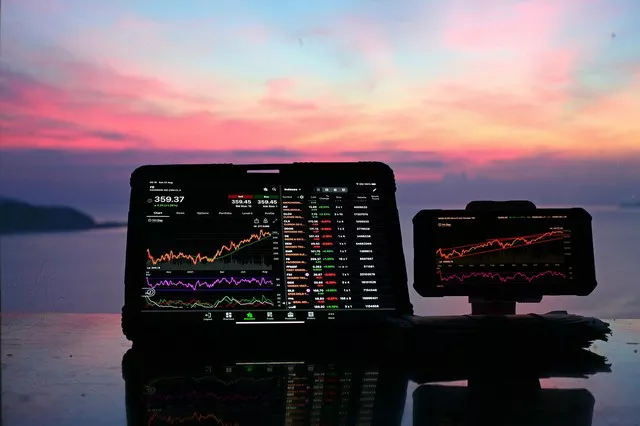The world of futures trading is a dynamic and ever-evolving realm where financial instruments, commodities, and other assets are bought and sold based on future price expectations. Traditionally, trading occurs during standard market hours, but with the globalization of financial markets and advancements in technology, futures trading has extended into overnight sessions.
Globalization of Markets
The globalization of financial markets has been a major catalyst for the expansion of overnight futures trading. As financial markets worldwide have become more interconnected, futures exchanges have adapted to accommodate traders from different time zones. This globalization enables participants to trade futures contracts nearly 24 hours a day, five days a week, allowing them to respond to global events and economic news in real-time.
Professional Traders and Institutions
Professional traders and institutional investors are some of the primary participants in overnight futures trading. These traders often have access to advanced trading platforms and resources that enable them to monitor and execute trades outside of regular market hours. Institutional investors, such as hedge funds, asset management firms, and proprietary trading desks, frequently engage in overnight futures trading to manage risk and capitalize on market opportunities.
Arbitrage Opportunities
Overnight futures trading also attracts arbitrageurs—traders who seek to profit from price discrepancies between related assets or markets. Arbitrage opportunities can emerge when news or events impact futures prices in one market while related assets, such as stocks or commodities, remain unchanged or react differently. Traders may take advantage of these discrepancies by simultaneously buying and selling related assets to capture risk-free profits.
Hedging and Risk Management
Hedging and risk management are essential functions of futures markets, and some participants engage in overnight trading to protect their portfolios against adverse price movements. For example, a commodities producer may use overnight futures trading to hedge against price volatility by selling futures contracts to lock in prices for future delivery. This strategy helps mitigate the risk of price fluctuations.
Speculative Traders
Speculative traders, both individual and institutional, participate in overnight futures trading to profit from anticipated price movements. These traders rely on technical and fundamental analysis to forecast market trends and make informed trading decisions. While speculation carries a higher degree of risk, it also offers the potential for substantial returns.
Algorithmic and High-Frequency Trading
The advent of algorithmic and high-frequency trading (HFT) has transformed the landscape of overnight futures trading. These automated trading systems can execute trades with exceptional speed and precision, making them well-suited for overnight markets. HFT firms employ sophisticated algorithms to capitalize on fleeting price discrepancies, contributing to market liquidity and efficiency.
Retail Traders
While retail traders may be less prevalent in overnight futures trading compared to institutional players, they still play a significant role. Many online brokerage platforms offer extended trading hours, allowing retail traders to access overnight markets. Retail traders may be drawn to the potential opportunities presented by global events and economic releases that occur outside regular trading hours.
Forex and Currency Traders
Currency futures are among the most actively traded assets in overnight markets, attracting forex traders who seek exposure to currency movements. The foreign exchange (forex) market operates 24 hours a day, five days a week, and overlaps with futures trading hours. This provides ample opportunities for traders to engage in both markets simultaneously and diversify their portfolios.
Commodity Traders
Commodity futures are another popular asset class for overnight trading. Commodities, such as oil, gold, and agricultural products, often experience price fluctuations influenced by international events and economic data releases. Traders in this space may utilize overnight futures trading to react to news from different time zones and manage their commodity exposure.
Diversification and Portfolio Enhancement
Diversification is a fundamental principle of investing, and some traders engage in overnight futures trading to enhance their portfolio’s diversification. By including futures contracts in their asset mix, traders can gain exposure to a broader range of assets and markets, reducing risk and potentially improving returns.
Risk Factors
Participating in overnight futures trading presents unique challenges and risks. Market volatility tends to be higher during overnight sessions due to lower liquidity, which can lead to wider bid-ask spreads and greater price fluctuations. Traders must be aware of these risk factors and implement appropriate risk management strategies.
Market News and Economic Events
Overnight futures trading often coincides with the release of economic data and news events from around the world. Traders who engage in overnight trading closely monitor these events, as they can have a significant impact on market sentiment and prices. Economic indicators, central bank announcements, and geopolitical developments are among the key factors that influence overnight futures markets.
Regulatory Considerations
The regulatory environment for overnight futures trading varies by country and exchange. Traders must be aware of the rules and regulations governing the markets they participate in, as well as any restrictions on overnight trading. Regulatory oversight is crucial for maintaining market integrity and investor protection.
Leverage and Margin
Futures trading often involves the use of leverage, which allows traders to control larger positions with a relatively small amount of capital. While leverage can amplify profits, it also magnifies losses. Traders should exercise caution when using leverage in overnight trading and be prepared to meet margin requirements.
Conclusion
Overnight futures trading has become an integral part of the global financial landscape, attracting a diverse range of participants, from professional traders to retail investors. This 24-hour accessibility enables traders to respond to global events and market developments, contributing to market liquidity and efficiency. However, it is essential to approach overnight futures trading with a clear understanding of its risks, regulatory considerations, and the factors that influence these dynamic markets. Whether for hedging, speculation, or diversification, overnight futures trading offers opportunities for those who are well-prepared and informed about its intricacies.


